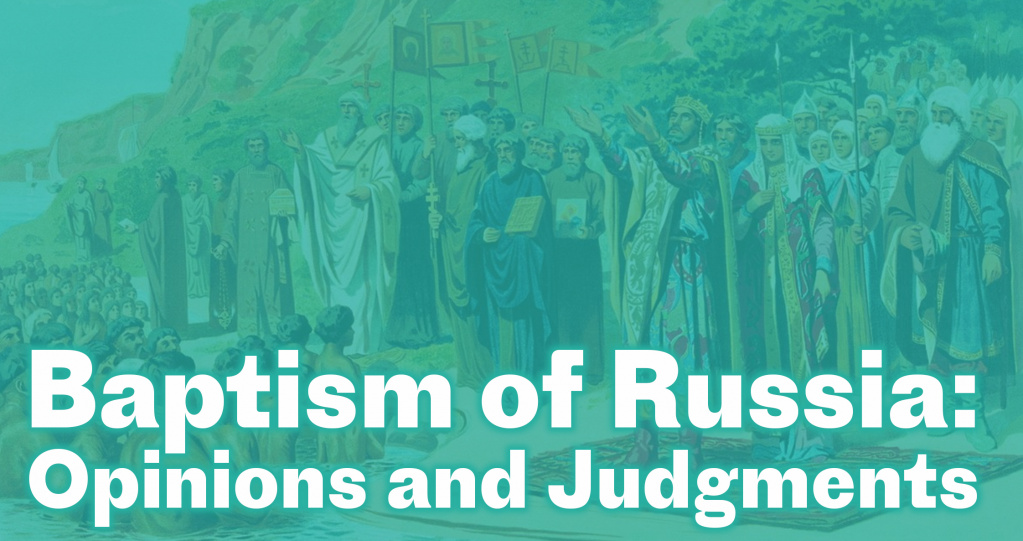Baptism of Russia: Opinions and Judgments
Pavel Kuzenkov, Candidate of History, specialist in Church History and Historical Chronology. Associate Professor of the Faculty of History of Moscow State University and of the Sretensky Theological Seminary, a lecturer of Moscow Theological Academy.
It is indisputable that the baptism of Russia was an epoch-making event. There is hardly an intelligent author to doubt the significance of this event for the history of our Fatherland. But opinions about the reasons and consequences of this choice of civilization made 1033 years ago by St. Vladimir are widely differing, ranging fr om an undoubted and rapturous approval to a similarly strong and resolute rejection and disapproval. Disputes over this issue have not ceased today. Below we offer to the attention of our readers some opinions and comments on the Baptism of Russia presented by different authors – fr om ancient to modern times – in their writings.
The early authors of the church tradition, naturally, were praising the activity of Prince Vladimir. The Tale of Bygone Years (also titled as Primary Chronicle or Nestor’s Chronicle) describes the baptism of Russia as a spiritual victory over paganism:
And there was joy in heaven and on earth about so many souls saved. The devil was groaning: “Oh, woe is me! I’m banished fr om here … I’m defeated not by apostles or martyrs, but by an ignoramus… And I can reign in these lands no more.”
The Chronicle also presents the views of the Baptizer of Russia in the first-person narration:
Vladimir, on his part, was happy to get to know God and let his people know Him too; raising his eyes to heaven, he said: “Christ, God, Who has created heaven and earth! Look at these new people and let them, Oh Lord, know you, the true God, as Christian countries know you. Establish the right and unwavering belief in them, and help me, Lord, against the devil, so that, laying my hopes on you and your power, I may overcome all his evil works.”
It (the Chronicle) also does justice to the political wisdom and moral feat of Prince Vladimir:
He is a new Constantine of the Great Rome; just like that one had himself baptized and had his people baptized, so also did this one. If before he had been following his nasty lustful desires, afterwards, he was zealous in repentance, according to the apostle, “But wh ere sin abounded, grace did much more abound.”It is amazing how much good he did to the Russian land, having baptized it…We ought to pray for him, because through him we came to know God. [1]
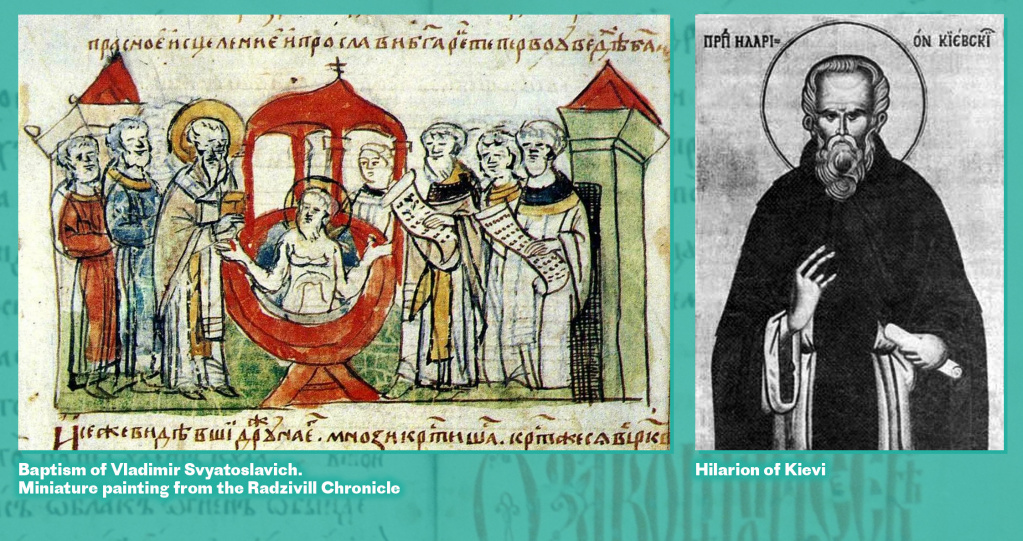
Metropolitan Hilarion of Kiev, the first Russian great orator and theologian, presents the Baptism of Vladimir and Russia as a synergistic effect of the Providence and the example of Byzantium:
He was visited by the Most High and the all-merciful eye of All-Gracious God looked on him. And the light of knowledge shone in his heart for him to see the vanity of idolatrous temptation and to seek One God who has created all things visible and invisible. At the same time he constantly heard about the land of Greeks, the land that was Christ-loving and strong in faith… And on hearing this, he got inspired with a heartfelt desire to become himself and make his land Christian. That was how by the will of God about human race it all happened. [2]
In the last will and testament to his sons (1054), Yaroslav the Wise described the results of the Christianization of Russia, using this beautiful metaphor:
My father Vladimir ploughed the Russian land with baptism, sowed it with books, brought up with commandments, reaped with law, solidified with faith and saved in spiritual granaries. You just eat prepared meals and drink spiritual drinks from the stone that is Christ.
With the time Prince Vladimir was looked upon as the true founder of Russian statehood.
The incorporation of Crimea into Russia gave a new impetus to the topic of the Baptism in Korsun. Catherine II got the title of the 'Tsaritsa of Tauric Chersonesus and established an Order of St. Vladimir Equal-to-the-Apostles (1782), who had undertaken many efforts for the enlightenment of Russia through Baptism; and may his prayers at the Throne of the All-Mighty Creator fortify the strength and work of the zealous and diligent servants of the Empire and of Our Throne. '[3]
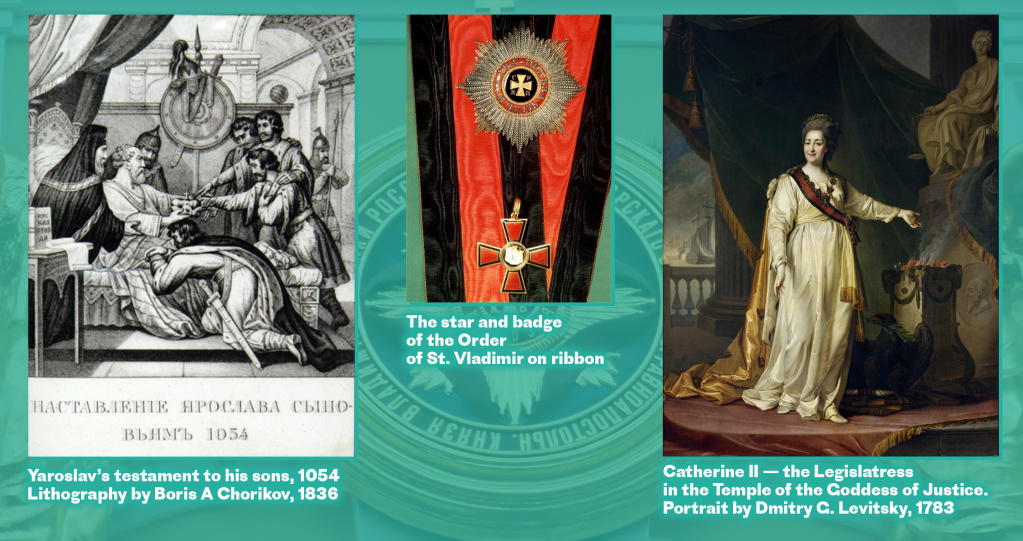
Speaking about Vladimir in his “History” Nikolay Karamzin italicized the following words: he tried to enlighten Russia. [4] It seems that the works of the Baptizer of Russia resonated with the ideals of the 18th century, the Age of Enlightenment.
But times were changing, and there was penetrating into Russia the spirit of “liberty” to which the centuries-old unshakable Orthodoxy appeared strange and outlandish. Pyotr Chaadayev bitterly complained about the isolation of Russia from the civilized world:
Obeying our iniquitous plight, we turned to the pitiful and deeply despised by northern nations Byzantium for a moral charter that was to form the basis of our up-bringing…We have confined ourselves within our religious separation, and none of the developments taking place in Europe is reaching us. [5]
Disagreeing with his friend, Aleksandr Pushkin argued:
We took from Greeks Gospel and traditions, but not the spirit of childish pettiness and bickering. The morals of Byzantium were never the morals of Kiev. Our clergymen before Theophanes were very respectable and never stained themselves with the baseness of papism… As for our historical insignificance, I strongly disagree with you here… I am far from admiring what I see around. As a writer, I am irritated. As a man with prejudices, I am offended. But upon my honour, not for the world would I like to change the Fatherland or have a history different from the history of our forefathers as it was given to us by God. [6]
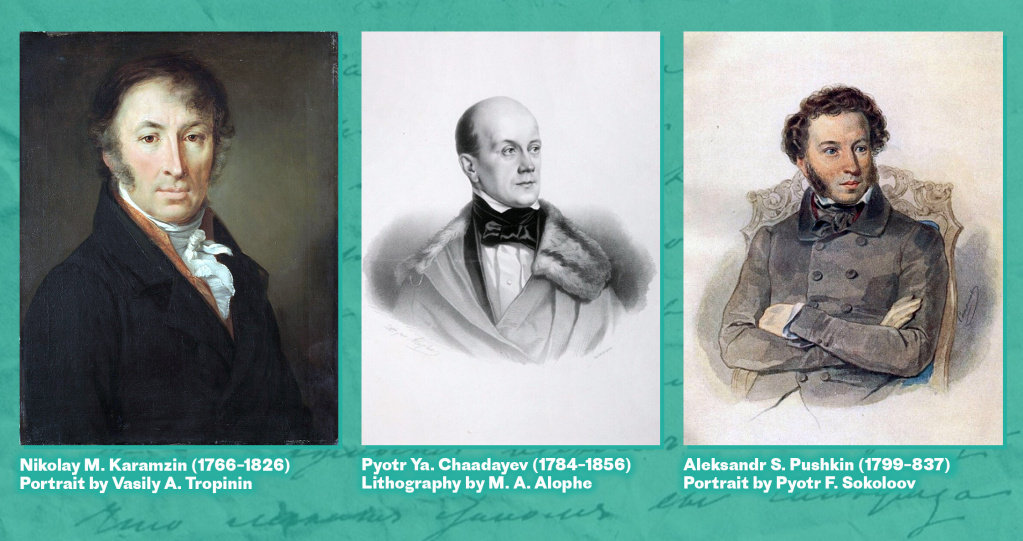
At the beginning of the Crimean war, St. Innocent (Borisov) appealed to the future heroes defending Sevastopol, saying:
This is wh ere the font of our Baptism is; this is wh ere our sacred history and national traditions began. To give up this land after that, handing it over to anyone else, is for Russia tantamount to turning down the font of her Baptism and to betraying the memory of St. Vladimir. [7]
Russia used to lend a helping hand to the Orthodox peoples of Europe and ultimately wrested them from the Ottoman yoke. Such a policy was the complete opposite of the militarist nationalism of the “Second Reich.” Fyodor Tyutchev arguing with Bismarck, wrote:
"Unity, announced the oracle of our day,
It may be soldered with blood and iron only...
But we will try to solder it with love,
And there we will see what is stronger ...
On the occasion of the 900th anniversary of the Baptism of Russia, poet Yakov Polonsky wrote a poem, including, among others, the following lines:
Shine, our faith! And off with doubt!
Messiah’s promised love without,
Would Russian state so great turn out?
Let them cool-minded and empty at heart
Negate things around them from the start.
We are different as we always care
To keep hearts open and ready to share,
To stay at one in the faith of the fathers
And treat the captives as our brothers.
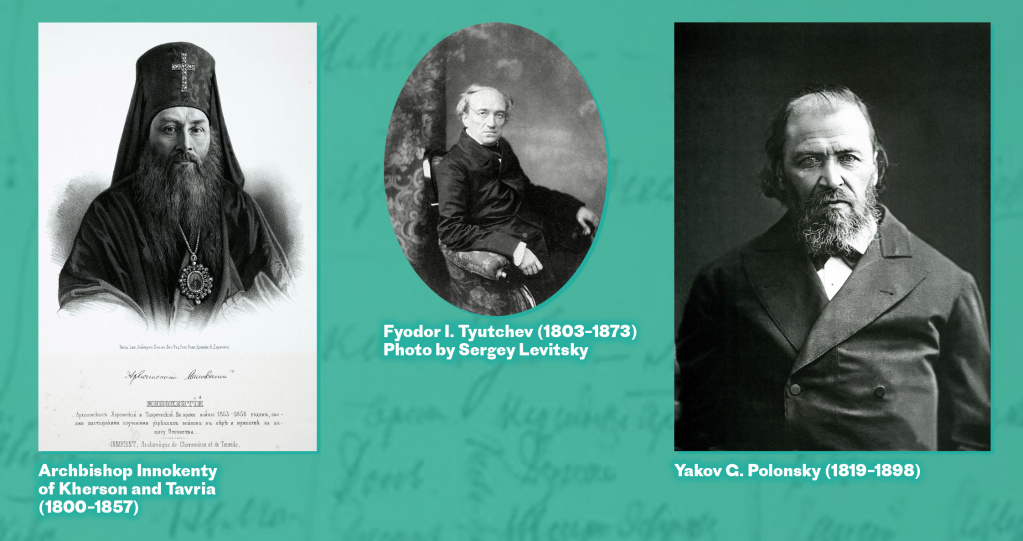
The 20th century witnessed ruthless severing with our great past. In 1936, a proletarian poet Demyan Bedny wrote a farce play “The Bogatyrs” in which he mocked the baptism of Prince Vladimir, but was severely criticized by Politburo for “unhistorical, deaf and cynical description of the baptism of Rus’ that actually was a positive stage in the history of Russian people.” Our country was preparing for fight with fascism, and the authorities were seeking support in the great past of Russia.
The Soviet text-books admitted:
The progressive role of the Church as an organization that helped consolidate the young Russian statehood in the epoch of the rapid advance of feudalism is indisputable, as undeniable is its positive role in the development of Russian culture, introduction to the cultural treasure of Byzantium, as well as in the spreading of education and creating valuable pieces of art and literature.
But appreciation was interspersed with ritual rebukes:
One should remember, however, that Russian people had paid a high price for that what was positive in the Church as a poison of religious ideology was penetrating into all pores of people’s life even deeper than at the pagan time, weakening class struggle, reviving primeval views in a new form and for long centuries solidifying in people’s consciousness ideas of the other world, the divine origin of the authorities and providentialism. [8].
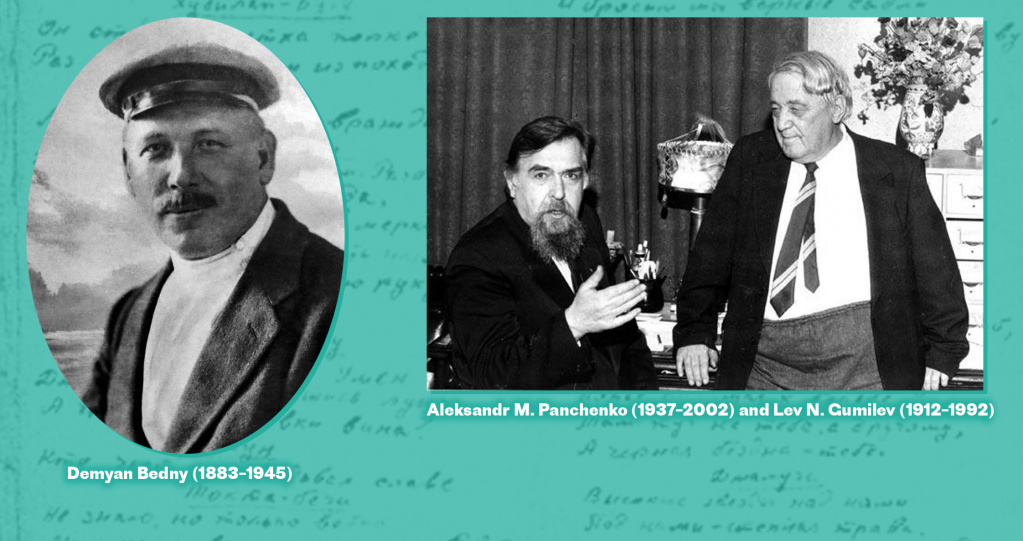
The year marking the millennium of the Baptism of Rus’ remarkably coincided with the turn of the USSR powers to values common to all mankind. The return to spiritual roots has begun, the years-old taboo disappeared, and academician Aleksandr Panchenko, like many other people, could openly give due to the historical role of Christianity:
Christianity that was rapidly spreading in Europe in the 9th -11th centuries proved to the pagans its power rather than truth. That is why Rus’ joined the all-European process. Yet, Baptism was not a renunciation. Rus’ has created its own version of Orthodoxy that was tolerant and open, and a complex culture equal in value. This culture, inspired by optimism, has produced the outstanding monuments of art and created timeless values. [9].
Lev Gumilev wrote: The Baptism has given our forefathers the highest freedom – the freedom of choice between good and evil, while the victory of Orthodoxy has granted Russia its thousand-year history” [10].
The theme of return to the roots of civilization is topical as never before in modern-day Russia. Historians have dispelled a myth of the Baptism of Rus’ “by fire and sword.” Professor Igor Froyanov wrote: “Prince and his retinue had no means for mass violation in society they ruled. They were subordinate to the veche (national assembly) which had a mighty military unit – a people’s voluntary army that was stronger than the armed force of the prince. It might be that there were certain facts of coercion during the baptism in Kiev, but they had not become a system.” [11]
The voices of critics of Russia’s historical course are still heard. Well-known journalist Vladimir Pozner was blunt to affirm that in his opinion it would have been much better for the future of Russia, if Vladimir had chosen Catholicism… “I think that Orthodoxy is dark, reactionary and conservative religion,” he said. [12]
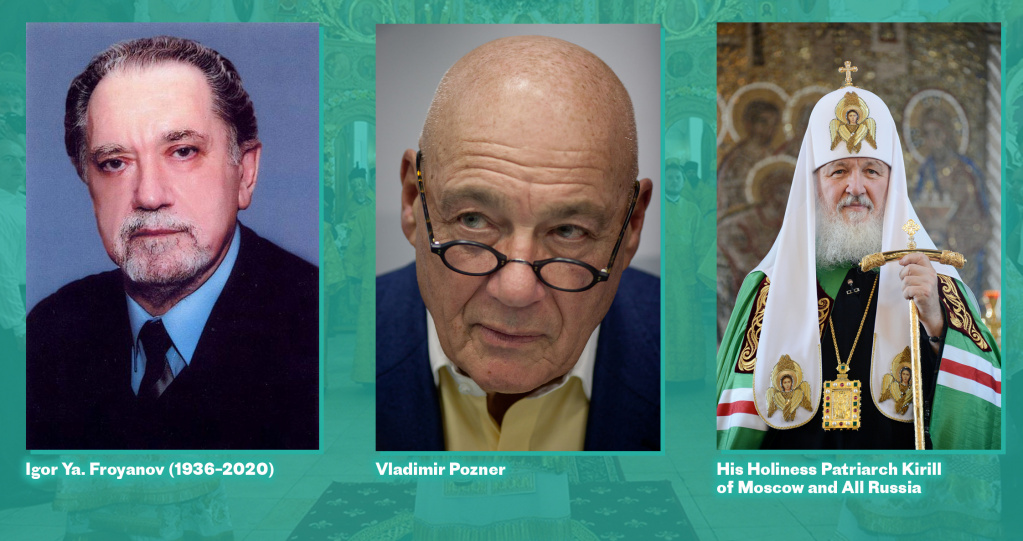
These words of the recognized guru of Russian liberalism are surprisingly reminiscent of the accusations of communist ideologists of the past. But those who seriously study our history in its depth would rather agree with the words said by Patriarch Kirill:
The Baptism of Russia, speaking in modern terms, was undoubtedly a revolutionary event. Moreover, by its consequences it is incompatible with any other subsequent revolution because the Baptism radically changed the life of the people, their culture and their value system. (…) The grafting to the graciously beneficial body of the Universal Church empowered Russian people with a very strong spiritual force, which – I am deeply convince of that – has been helping our people overcome very complicated twists and turns along our historical road. {13]
Notes
1. Tale of Bygone Years, the years of 6496 and 6523 from the creation of the world
2. The Sermon on Law and Grace by Metropolitan Hilarion. Translated by deacon Andrei Yurchenko. http://lib.pushkinskijdom.ru/Default.aspx?tabid=4868
3. The Complete Collection of Laws of the Russian Empire. 1st col., St. Petersburg, 1830, vol. 21, No. 15515
4. A History of the Russian State. Vol. I, ch. IX. http://www.spsl.nsc.ru/history/karam/kar01_09.htm
5. The Philosophical Letters, 1st Letter (1838)
6. Letter to Pyotr Y. Chaadayev of October 19, 1836 // Aleksandr S. Pushkin, Collected Works, Moscow, 1962, vol. 10, P.308
7. Oration at the ceremony of laying the foundation stone for St. Vladimir’s Cathedral in Sevastopol, July 15, 1854. Cit. from’ The First Siege of Sevastopol 1854-1855’ by Nikolai F. Dubrovin, he “Russian Troy,” St. Petersburg, 1900
8. Rybakov, Boris A. History of the USSR. From Ancient Times to the End of the 18th Century, M., 1975
9. Panchenko, Aleksandr M. On Russian History and Culture. St. Petersburg, 2000, P.335
10. Gumilev, Lev N. From Rus’ to Russia, M., 1992
11. Romanov, Igor Yak. The Enigma of the Baptism of Russia, M., 2007. P.107

